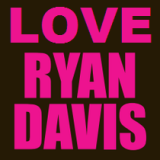Morality in The Saboteur's Storytelling: Killing for a Priest
By Kierkegaard 21 Comments
The Saboteur creates a somewhat contradictory tone. As the foul-mouthed, balls to the wall Irishman Sean Devlin, you kill Nazis with a smile, terrorize Parisians with the sloppy car physics, and generally create mayhem. Sure, you're doing it for some ill-conceived revenge because Sean didn't care a like about the Nazis until they tortured and killed his friend, but, mostly, the actual gameplay is an adrenaline-fueled romp.
And that gameplay is remarkably enjoyable. Explosions are easy to pull off yet satisfying in their execution. On normal, killing hundreds of Nazis is easy, yet its arcadey feel makes that just fine. Even the stealth, something that could have been messy and awkward, is built upon elegant representational systems of suspicion that never feel realistic, but are fun.
So, when you walk up to a priest sitting in one of the booths of the Moulin Rouge-esque club full of scantily clad (or nude if you bought the game unlike me who rented it) women, you expect to continue in this tonal vein. Then he spins his tale:
Sean, he says, I have a man who confesses to me each week. He confesses that he is a Nazi informant, that his words have killed many people. "He asks for my forgiveness, but I am afraid do not have any more to give."
Sean pledges to kill the cocksucker, or something to that extent. At the priest's behest, he climbs up a church, grabs a sniper rifle, and waits for the priests signal as sinners come to repent. As a man approaches with an umbrella, a man who looks much like any other, the priest screams out something about the sword of God striking down the wicked, Sean shoots the penitent, and then has the easy task of escaping a small red circle of Nazi alarm.
I wonder at the meaning of all of this. Questions it raises for me include:
1. If the priest is a man of peace, a man who is ordained not only not to judge, but to relieve men of God's judgment if they openly confess their sins, is this act a rejection of his religion, his station, and his responsibility?
2. The man clearly feels guilty for his betrayals. He confesses them. He knows they are wrong. Is this worse than a man who kills out ignorance or hatred? Or is it proof that, rather than a swift bullet to the head, he is truly deserving of a second chance in the resistance itself where he will be protected against the Nazi influence that seems to have driven him to such evils.
3. This mission seems like a story someone would tell in a Spielberg film, a moral dilemma indeed. What the hell is it doing in The Saboteur? I love that a game is making me ponder so deeply, but this all feels somehow worse since it's located in this jocular game and since Sean doesn't ponder it for a second.
The Saboteur is not about choices. But I do wish I could have chosen to do something different in this mission.

21 Comments